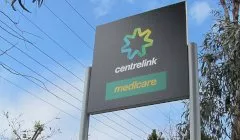Save
Are your franking credits working?
Here’s what you need to know about franking credits and how they work.
Are your franking credits working?
What are franking credits?
Franking credits are credits for taxes that a company has already paid on its profits at the 30 per cent corporate tax rate before distributing it as dividend payout.
Companies may then decide whether to use the tax credit or pass it on to shareholders by distributing fully franked or partially franked dividends.
The main difference between fully and partially franked dividends is how much of the company-paid taxes shareholders will benefit from. Fully franked dividends come with credits for the full 30 per cent, while partially franked dividends limit tax offsets for the franked portion of the dividends.
What franking credits can do for you
Franking credits may provide extra income or bring down your tax payable, but you may not feel its effects unless you have a significant investment in dividend-paying shares.

This is because the underlying company gets to decide the amount of dividend per share – some may give a few dollars, while others may give smaller amounts.
In this sense, shareholders who have a large number of dividend-paying shares in their portfolio may enjoy larger dividends compared with fund members.
Your franking tax offset
Dividends also form part of your income and must be included in the tax return in the financial year it was distributed and you may have to pay tax on them. However, the franking credits you receive from franked dividends may lower your tax obligation for the year.
Likewise, you may claim a cash refund if your marginal tax rate falls below 30 per cent.
Do franking credits affect superannuation?
Many super funds include dividend-paying shares in their portfolio, but fund members may not necessarily feel its effects – it all depends on how the fund manager utilises the credits.
Some fund managers and trustees simply pass on franking credits that are proportional to the units its members hold. However, some may use the credits to reduce the total tax that the fund pays then passes the dividends to members – it all depends on what was agreed upon.
Will franking credits be abolished?
The Labor Party’s proposal in the lead-up to the 2019 elections touched on franking credits but focused on abolishing cash refunds and not the imputation system as a whole.
However, the Labor Opposition’s election loss means that the government will continue to hand out cash refunds for taxpayers who claim their excess franking credits.
Despite this, investors may expect that cash refunds and the imputation system may be challenged again in the future, as it had been multiple times since it was passed.
Explore nestegg to learn more about franking credits and taxes.
About the author

About the author


Tax saving
$20,000 instant asset write-off extension welcomed, but calls for broader support grow
The Australian government's decision to extend the $20,000 instant asset write-off into the next financial year has been met with approval from business leaders. However, there are growing calls for ...Read more

Tax saving
The downsizer dividend: How targeted tax levers could unlock housing supply in Australia
A call by Raine & Horne to incentivise seniors to move to smaller homes has kicked off a wider policy conversation that reaches well beyond real estate. If designed well, a targeted package could ...Read more

Tax saving
Raine & Horne's bold move could unlock housing supply but what are the hidden risks
Raine & Horne’s call for targeted tax incentives to encourage empty nesters to ‘rightsize’ isn’t just another sector wish list; it’s a potential lever to free up family homes, ease rental ...Read more

Tax saving
From annual check-ups to always‑on: how modern portfolio reviews unlock after‑tax alpha
The era of once‑a‑year portfolio check‑ins is over. Continuous, tech‑enabled reviews now drive returns through tax efficiency, risk control and behavioural discipline—especially in a high‑rate ...Read more

Tax saving
Navigating tax laws for capital gains in 2023
The landscape of Australian tax laws surrounding capital gains is ever-changing, with 2023 being no exception. Read more

Tax saving
What you need to know about the tax implications of crypto
One million Aussies are now invested in crypto, but many have not thought about how these investments will affect them at tax time. Read more

Tax saving
Welfare overhaul could give recipients a leg-up
Australia’s Centrelink recipients who’ve been doing it tough are in for a potentially easier time if the federal government pursues ambitious reforms that could provide sturdier safety nets. Read more

Tax saving
Students should think twice before tapping into their super
Former students might want to think carefully before they look to take advantage of the federal government’s biggest first home buyer incentive. Read more

Tax saving
$20,000 instant asset write-off extension welcomed, but calls for broader support grow
The Australian government's decision to extend the $20,000 instant asset write-off into the next financial year has been met with approval from business leaders. However, there are growing calls for ...Read more

Tax saving
The downsizer dividend: How targeted tax levers could unlock housing supply in Australia
A call by Raine & Horne to incentivise seniors to move to smaller homes has kicked off a wider policy conversation that reaches well beyond real estate. If designed well, a targeted package could ...Read more

Tax saving
Raine & Horne's bold move could unlock housing supply but what are the hidden risks
Raine & Horne’s call for targeted tax incentives to encourage empty nesters to ‘rightsize’ isn’t just another sector wish list; it’s a potential lever to free up family homes, ease rental ...Read more

Tax saving
From annual check-ups to always‑on: how modern portfolio reviews unlock after‑tax alpha
The era of once‑a‑year portfolio check‑ins is over. Continuous, tech‑enabled reviews now drive returns through tax efficiency, risk control and behavioural discipline—especially in a high‑rate ...Read more

Tax saving
Navigating tax laws for capital gains in 2023
The landscape of Australian tax laws surrounding capital gains is ever-changing, with 2023 being no exception. Read more

Tax saving
What you need to know about the tax implications of crypto
One million Aussies are now invested in crypto, but many have not thought about how these investments will affect them at tax time. Read more

Tax saving
Welfare overhaul could give recipients a leg-up
Australia’s Centrelink recipients who’ve been doing it tough are in for a potentially easier time if the federal government pursues ambitious reforms that could provide sturdier safety nets. Read more

Tax saving
Students should think twice before tapping into their super
Former students might want to think carefully before they look to take advantage of the federal government’s biggest first home buyer incentive. Read more














